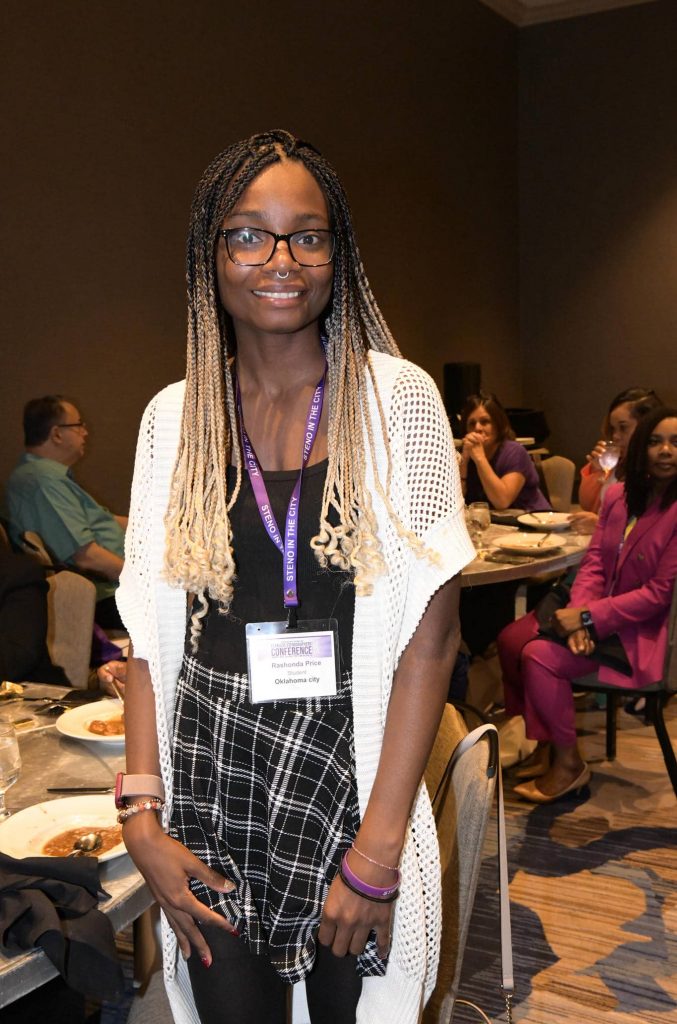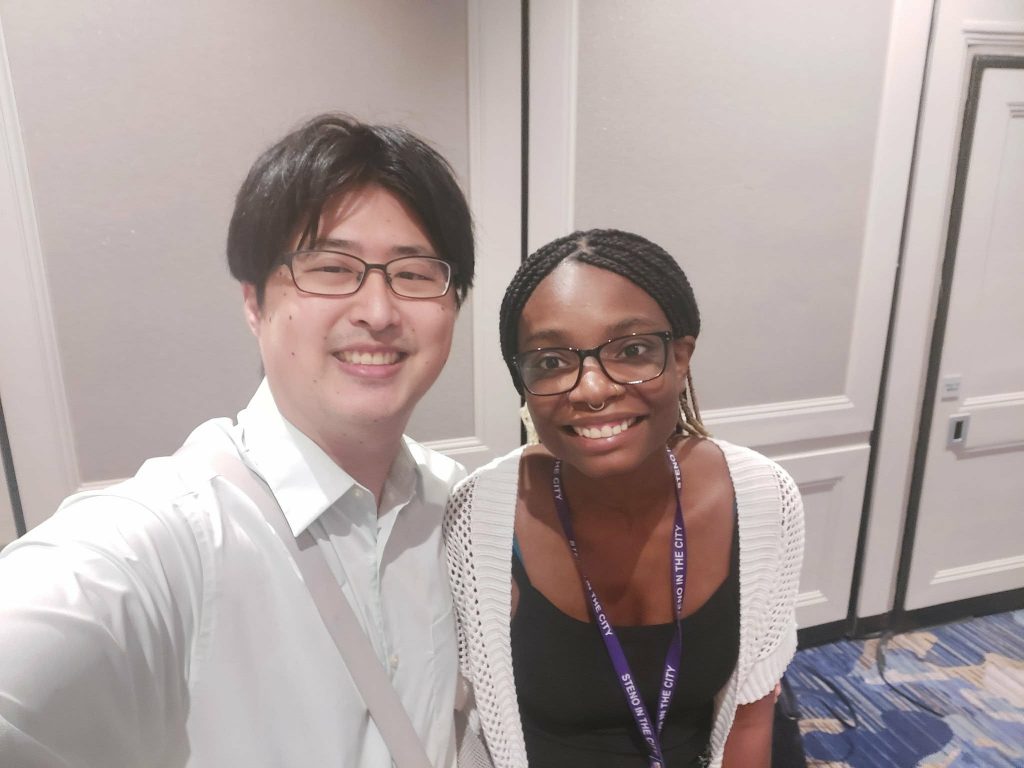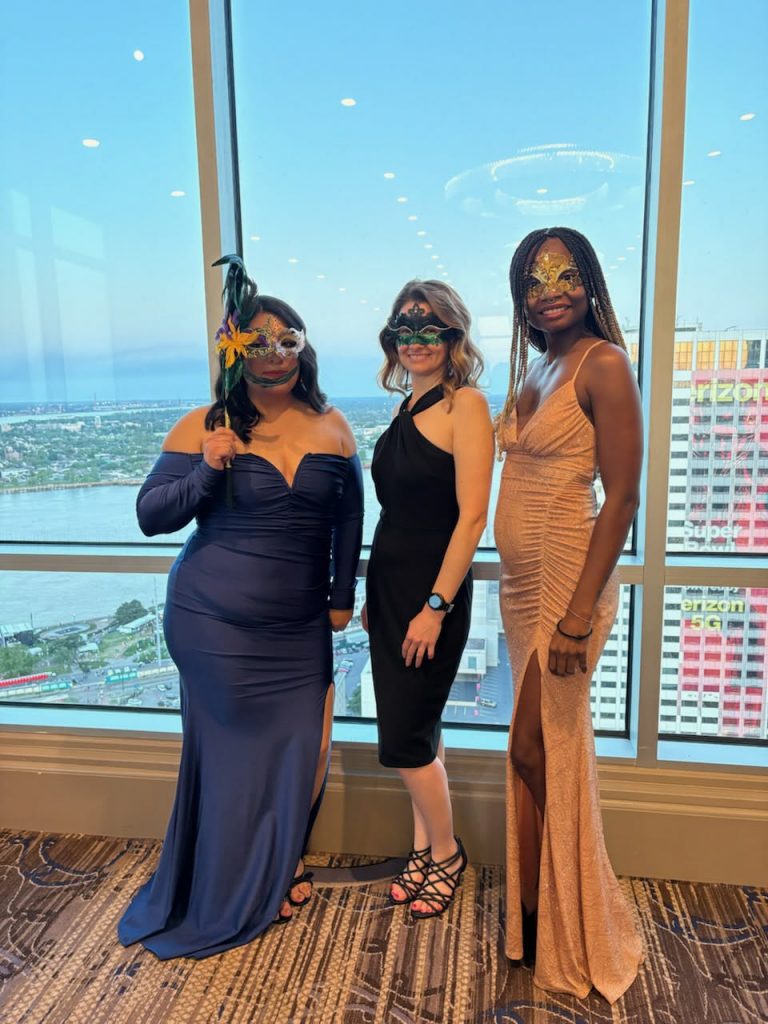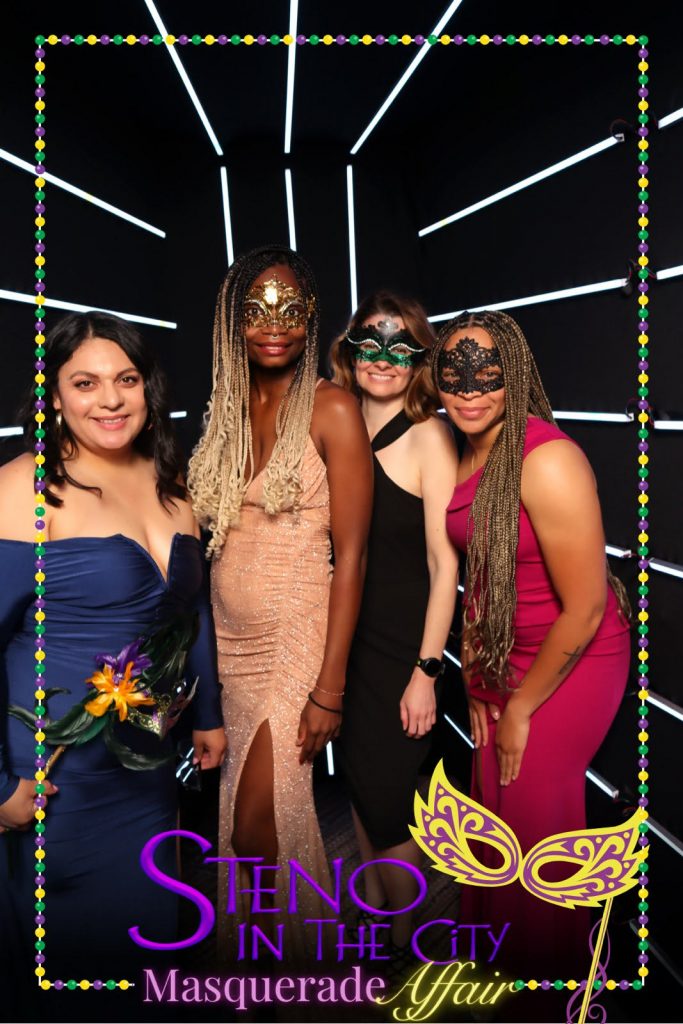A Rising Steno Star in the Making
From 0 to 225 WPM in Just 16 Months
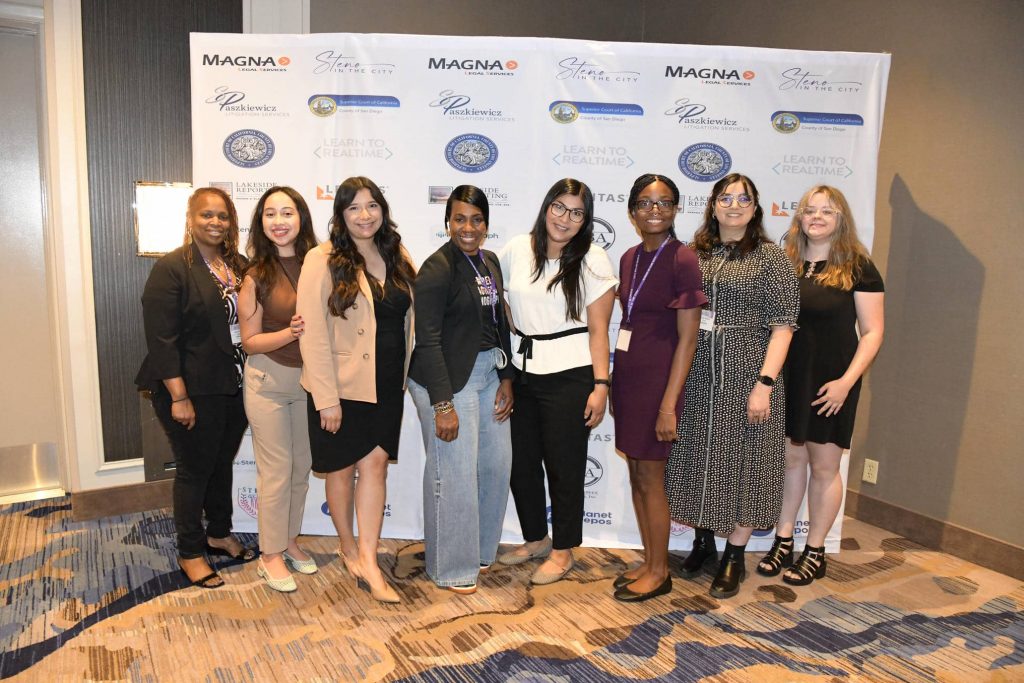
On March 11th, I was checking my TikTok messages when I received one from steno student Lydia Martinez. She asked if I could reach out to another student who had posted about wanting to attend the Fearless Stenographers Conference in New Orleans. The post read:
“Does anyone know the process to get sponsored for Steno in the City? Dying to go.”
I clicked over to Rae’s TikTok page, and within minutes I was in tears. The dedication, authenticity, and passion were undeniable. Before taking the next step, I reached out to her instructor to verify a few details.
Immediately afterward, I messaged a group of reporters:
“I think we have a student who is going to excel in this profession. Let’s sponsor her room, registration, and flight.”
Within minutes, everything was in motion. I was able to tell Rashonda that she would be attending the upcoming Fearless Stenographers Conference and that her entire trip would be fully sponsored by a group of generous reporters.
From that moment to now, watching Rae’s journey has been an absolute joy. Every time she passes a speed test, we celebrate together via text. And when I say I am proud of this student/new professional, I mean it with my whole heart.
We truly have an unstoppable stenographer in the making
Interview by Shaunise Day
1. For those who may not know you, who is Rashonda Price?
My name is Rashonda Price, but a lot of people just call me Rae. I am a 31-year-old, neurodivergent mother of four. I’m a bit of a jack of all trades, but my main career background includes nursing—everything from Med Surg to ER, plasma work, and even labor and delivery, as well as material data surveying. I have four beautiful children (an even split!) and I also take care of my mother and two nieces.
2. How did you first discover the world of stenography?
About two years ago, I came across stenography on TikTok while I was considering pursuing a degree in law. I was immediately drawn to it and thought it was something I’d be interested in. I debated it heavily at that time, but ultimately decided I was just rushing into things. Fast-forward a year later, it popped up again on my TikTok, and I immediately fell in love and decided I was going to do it.
3. What was your schooling experience like?
I attended three schools on my journey. I don’t think my journey was particularly difficult when choosing schools; I just think I should have done a little more research rather than jumping in headfirst as quickly as possible.
4. What motivated you to switch schools, and at what speed were you when you made that change?
The first school was not for me. It was a theory that didn’t have a name, and I completed it within a month. Before entering speeds—and because there were no curriculums like English—I decided to switch to MKA. I completed MKA’s theory in nine months and then switched to Allie Hall for speed building because I felt like I needed to be able to test as often as I wanted.
5. Can you walk us through your practice routine and what helped you stay consistent?
Consistency was never a problem for me because I love steno. I ate, slept, thought, and breathed it. It never felt like a task—never like an “oh my God, I have to study, ugh” kind of thing. Typically, I would practice at least six hours a day. At one point, I did a 12-hour session with my study group (the best day ever!).
I followed Allie’s instructions, which included practicing 40 WPM above testing speed for JC and QA, as well as 20 WPM over for Lit. After each take, I would go back over my notes and make a hesitation list. Once I got to 140–160, I started making changes to my dictionary using the idea that “once is a mistake; twice is a habit.”
On test days, I never practiced at testing speed before the test—I always practiced 20–40 WPM faster.
If I was lacking endurance, I would pull up a YouTube video at the speed I was testing at, do a 10-minute take, break for five minutes, and then jump back in and do it again. I did this for two or three days, and five-minute tests stopped feeling difficult.
I found my study buddies (David and Victoria) early on. They helped me implement finger drills, writing to YouTube dictations, and creating new briefs for things that caused problems.
I had really bad testing anxiety, so at one point, I did exposure therapy. I tested as many times as it took in one day (this could be one to three one-minute takes, sometimes five) to numb myself and steady my fingers so it felt like regular practice. Even now, I still do this.
Did I transcribe every single test? No. But when I got to the point where my hands felt less shaky, I did.
My study habits changed constantly while I was in school, so it just depended on what my issues were at the time.
6. How do you balance school, workload, motherhood, and practice time?
I believe that if you want something bad enough, you’ll make it happen. That’s exactly what I did. I have a support system, but there were still things I had to give up. I had to hunker down and stay focused, which often meant telling my kids, “Mommy will do this later.” Whatever I told them I would do, I made sure I did it.
Yes, I missed some game nights because I was practicing. I practiced at work constantly. Anywhere I could whip out my machine, I did. And if I didn’t have it with me, I was writing steno in my head or using a practice board.
7. Was the Fearless Stenographers Conference your very first steno-related conference?
Yes, it was the very first steno conference I had ever attended.
8. What was that experience like for you?
SITC was one of the best experiences of my life. I already had a fire in me for steno and knew it would be my career, but coming to SITC and meeting other people took that feeling to another level. The environment was out of this world. I had never experienced anything like it in my nursing career. The reporters were so welcoming and helpful. It was truly beautiful.
9. Was it easy to make connections with other students?
Yes, it was! Most of the students were so excited to be there, and everyone was incredibly talkative and open. During sessions, we had plenty of opportunities to branch out, mingle, and share our experiences. Since I was sponsored, I opted to have a roommate, which made connecting even easier—we spent a lot of time discussing schools, practice habits, and our journeys overall.
10. You were also a Steno in the City scholarship recipient. Would you encourage other students to apply?
Absolutely! My mother always said, “Closed mouths don’t get fed.” If you don’t try, you’ll never know what could happen. I really needed the funds at the time, and I was hesitant to accept anything I didn’t “work for,” but these scholarships are meant to help you accomplish your goals. They exist for a reason—use them.
11. Did you make meaningful connections while attending the New Orleans conference?
Oh, I sure did. I met you, Shaunise, in person first and foremost. I met my sponsor, my first mentor, and many others. I also met Andrew Ha, a court reporter of two years at the time. It was almost magical. I met him on the last day of the conference, and by the end of it we had a connection. By the time the conference was over, we had exchanged numbers and the rest has been history! I believe in destiny, and I felt like he was a sign that my choice in this field was the right one. Sorry—I’m a bit of a hopeless romantic. After I get my RPR, I’ll be pursuing my CA CSR and moving to California to start yet another journey.
12. For a student attending their first conference, what advice would you offer?
Don’t be afraid to find your voice. I never expected to get up and speak at the conference, but I did because I was so moved by the stories I was hearing. After that moment, it felt like a door had opened. People began talking to me, and the “introvert ice” I usually have melted away. I made connections, collected phone numbers, and heard stories that made me feel less alone in my struggles. This journey has been taken by so many others—and while the path isn’t identical, everyone has had tough spots.
13. You progressed quickly this year, passing test after test. What drives your determination and consistency?
I want a better life for my children and my mother. From a young age, I promised my mom she would never have to want for anything when she got older. I’m determined to make that happen—and to provide the same for my children.
14. You recently passed both the RSR and the Oklahoma State exam. How are you feeling about those accomplishments?
I’m excited for what’s next. As soon as I got my preliminary results, I told my mother, “Okay, now for the RPR.” The sky’s the limit, and I can sense realtime coming soon.
15. Do you plan to attend the next Fearless Stenographers Conference in Washington, D.C., April 16–18, 2026?
I WILL (speaking it into existence) attend the conference in April—and every single one after that!
16. Any closing remarks you’d like to share?
It’s important to change your mindset. I had to learn that the hard way, but so much of your progress depends on mindset. Don’t go into a test expecting to fail. If you miss a word, focus on picking back up as if the dictation just started. Let your fingers go—you’ve practiced. They know what to do. You’ve got this. David is the one who always is telling me this.
Don’t overthink it. After a test, reward yourself—even if you didn’t pass. It helps your brain associate testing with something positive and reduces anxiety. Reward yourself twice if it’s a personal best! I learned that from Victoria.
Quantity does not equal quality. I may have practiced for hours, but that doesn’t mean you have to. Everyone is different.
Find a study group. You will push each other to be the best you can be. You’ll become each other’s support system. I found mine, and it has been an amazing journey. I know we’ll stay in contact for years. We’re like family now. Throughout this whole article I have mentioned people who have helped me. Court reporting may feel very solitary, but it doesn’t have to be. If you look, you will find your people.
If you ever see me at a conference, don’t hesitate to come up and talk to me. I’m an open book.
